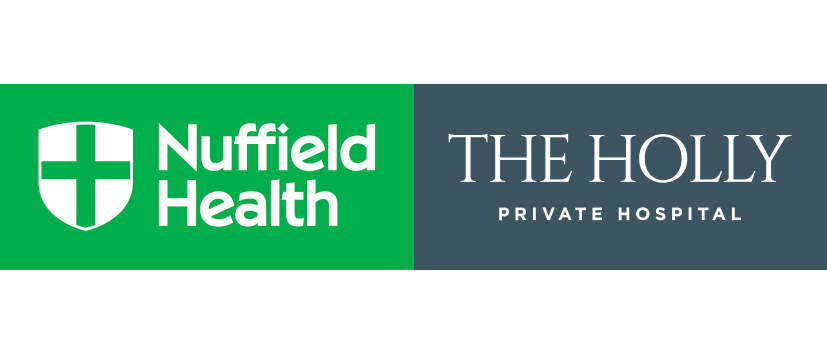Constantly Need To Go To The Toilet? Consultant Urological Surgeon Mr Stuart Graham explains what might be causing this.

Mr Stuart Graham, Consultant Urological Surgeon
The Holly Clinics: Monday AM and Wednesday evening.
If you feel you have to go to the toilet all the time or have “accidents” when you can’t get there fast enough, you aren’t alone. Frequent urination can be a symptom of many problems. In this article, Consultant Urologist Mr Stuart Graham answers your frequently asked questions (FAQs) about what might be causing so many trips to the loo.
I feel like I constantly need to go to the toilet. What is causing this?
Well the first question to ask yourself really is “What is normal?” A typical person will empty their bladder every 3 to 4 hours. Some people’s bladders will hold more, and some people seem to go more often than others. The question is whether the frequency has changed over time and obviously then whether it bothers you. Because the kidneys turn off at night, it is quite a common finding that people will get up in the morning, pass urine and then need to go relatively quickly afterwards.
What might be the causes of this?
People talk about a weak bladder but what they mean by this is an overactive bladder. Usually the bladder stays pretty calm while it is filling, and it is only when the bladder is almost full, will a signal be sent to the brain to say it needs to be emptied. In people with an overactive bladder, the bladder tells the brain its full, as it fills up, making people go to the loo before its actually full. Because it is not very full, the patient may only produce small amounts of urine.
Other things that can give a similar feeling is something called a sensory bladder. In this, the system controlling the bladder has learnt to tell the brain that the bladder is full when it is not. Infection will make patients go to the bladder frequently, as will a blockage, such as the prostate gland or a stricture. Some do not squeeze properly anymore (essentially a glass half full scenario) and very occasionally untoward things can cause a problem like a cancer. Generally this is heralded by bleeding but not exclusively so.
What are the causes of an overactive bladder and how can you treat them?
In most people an overactive bladder is simply something which has developed. In a proportion of patients, especially in men, there is a blockage. By removing the blockage, generally the bladder has a chance to settle back down again and go back to normal. In a small number of people, something else causes the problem, which is either related to the nerves to the bladder. More commonly however, conditions like uncontrolled diabetes will affect how the bladder works and squeezes. Again, in a very small number of people, something in the bladder may cause trouble such as bladder stones and bladder cancers but these are not common reasons why people have an overactive bladder.
I sometimes have to go to the toilet really quickly without warning and sometimes I leak which is causing me a lot of embarrassment and stress. Can you help with this?
Yes of course. There are some very simple treatments which will calm this down. There is a need to make a diagnosis first, because some treatments may make symptoms worse if the diagnosis is incorrect. Everyone can help themselves, usually by increasing the amount of fluid they drink, as concentrated urine is often quite toxic to the bladder and it doesn’t like it, making it twitchy.
Through The Holly, I can offer a full diagnostic service to understand why the symptoms are there, and to treat them effectively. This treatment can include medical treatment, but also other non-drug treatments including nerve stimulation techniques and injecting the bladder with Botox are available. This is a treatment often used for wrinkles in the skin but is also effective in the bladder.
I can perform a test called Urodynamics, that looks at the bladder’s function in some detail. This is a local anaesthetic procedure with only small risks. The bladder can also be inspected with a telescope if necessary. (a cystoscopy). This again can be done under local or general anaesthetic.
Other times I feel like I need to go to the toilet but I can’t actually go. What is going on?
In some people the bladder pressure rises on its own, and early. The bladder hasn’t had a chance to really fill up at this point, and so unsurprisingly, nothing really wants to come out. Very occasionally there can be a problem with how the bladder co-ordinates itself, but this is again something which is picked up on the simple testing that can be done. In a proportion of people, especially men with prostatic symptoms, this can be a finding when the bladder wants to empty but the prostate is in the way. The bladder is therefore winding up and gaining pressure to empty, which is why nothing comes out to start with.
I’m worried about seeing a Urologist. What actually happens during the consultation?
During your visit with me, the first thing I will do, after saying hello, will be to go through your symptoms, to find out exactly what you are experiencing. I’ll be interested to know how much fluid you drink, especially in the form of caffeinated tea and coffee. We’ll spend some time looking at your medicines, and what simple things you may have found have helped in the past. I will also be interested to know what treatments your doctor has already tried. I will obviously examine you (with a chaperone present, for your comfort, if you wish it). I will want to know if anything is wrong but often this is to prove that everything is normal. I may want to examine the prostate gland in gentleman and occasionally I do an internal exam in ladies, if it is necessary and indicated.
I am likely to ask to send a urine test, to make sure there is not an infection, as this can cause trouble in some people. I may do some simple blood tests to exclude other causes, but this is not usually a major part of what happens. I will ask you to keep a basic diary of how much fluid you are drinking at different times and how much urine is coming out at different times, as this will help me.
Other simple tests that I may offer, will include ultrasound scans to prove there are no stones in the kidneys, and to give an idea about how the bladder empties. I may ask you to do a simple test of passing urine into a machine, to measure how fast the urine comes out. From there I may offer other tests including an inspection of the bladder, called a cystoscopy, and/or a function test of the bladder called Urodynamic Studies. If simple treatment can be given before this, obviously that is something we will discuss together and agree on. If your prostate is the problem, I can offer both Laser prostatectomy (HoLEP) & UroLift, if surgery is indicated.
*Please note if there are further investigations you will be billed separately for these.
I’m really worried I might have prostate of bladder cancer, how can you check for this and what treatments are available?
I fully understand why you may be worried about this. An overactive bladder is a rare presentation of bladder and prostate cancer, but I would emphasize that; it is rare. I am worried about people who have blood in the urine, especially if you smoke. By far the best way of avoiding bladder cancer is to stop smoking, or not smoking in the first place. Most people with worries of prostate cancer will have a blood test called a PSA. I am very happy to see you and assess this after the appropriate counselling, and obviously I would want to check the prostate gland with my finger, as these two tests together are probably the best two. We can then go on from there. From the point of view of bladder cancer, the best way to exclude problems in people with symptoms, is to look inside with a telescope and this is something that I can offer through The Holly Private House.
An initial consultation with Mr Graham costs £180, if you don’t have health insurance.
To book a consultation, call our friendly appointments team on 020 8936 1201.
Package prices for cystoscopy starts from £1210* for day case and £1310* as an inpatient procedure.
Package prices for urodynamics starts from £315* plus consultation fee.
Package prices for HoLEP start from £5535*.
For more information on self-pay pricing just call our friendly Self-Pay Team on 020 8936 1157 or email info@theholly.com
Read more about Urology services at The Holly Private Hospital here.
*Guide price only.
Date: 01/09/2016

